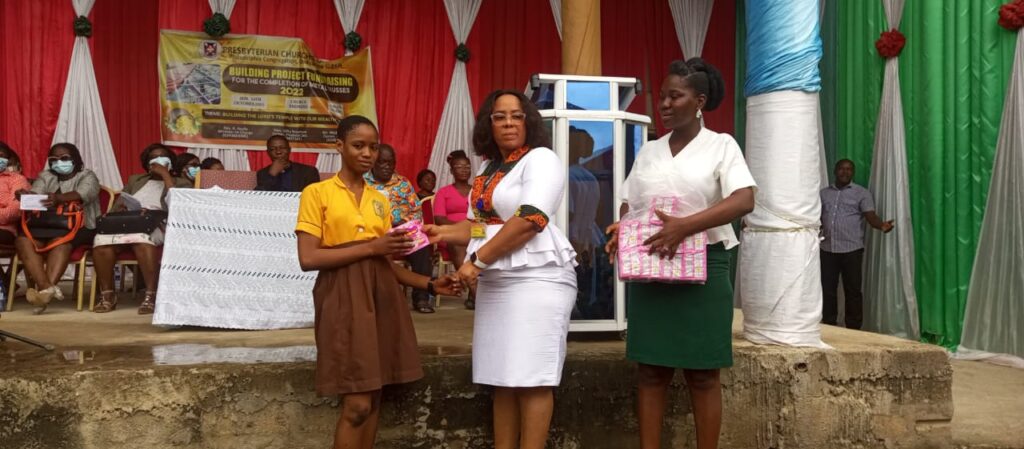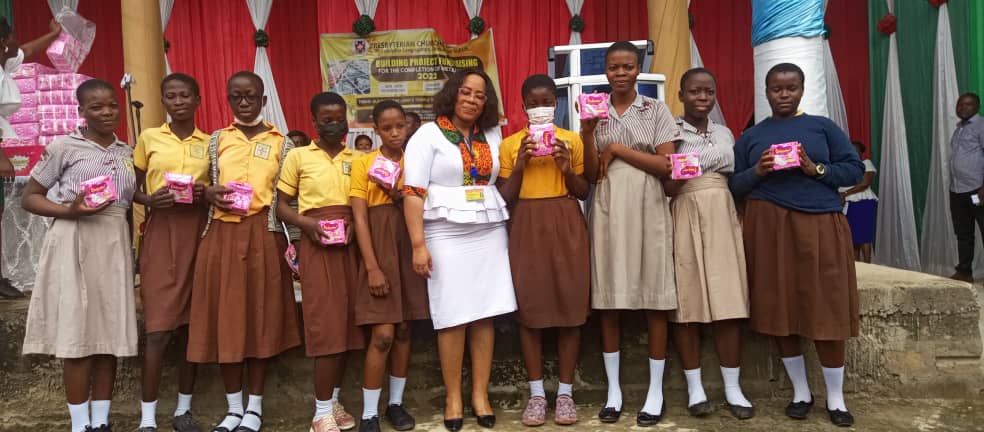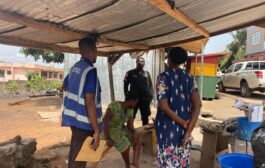The Member of Parliament for Shai Osudoku Hon. Linda Akweley Ocloo joined menstrual health and hygiene education in the New Town community in Akuapem South District of the Eastern Region
The program was organized by National service personnel at Akuapem South Health Directorate Mrs. Veronica Teiko Tawiah with the support of the Member of Parliament for Shai Osudoku Constituency Hon Linda Akweley Ocloo.
The purpose of the program was to give practical education to hundreds of teenage girls in the New Town Basic School on Menstrual hygiene Management and teenage pregnancy.

Hon. Linda Akweley Ocloo in an interview told the media that, “menstruation is something natural so that they can manage that periodic process. The whole agenda of this program is to educate the girl child that Menstruation leads to teenage pregnancy. As soon as you menstruate you are susceptible to pregnancy. So we share pads with them to manage their menstrual flow. So that nobody deceives them with pads to get them impregnated”
The organizer of the event, Mrs. Veronica Tieko Tawiah bemoaned the rising menstrual poverty and obstacles teenage girls, particularly those in rural areas face.
“I saw the need to help the younger teenagers to be able to rise unto their feet to be able to become the women they want to be in future since society has brought a lot of challenges unto them during our days it wasn’t like that we saw it to be better so as a form of motivating them and speaking to them on menstrual hygiene I thought it wise to organize this for New Town Basic A, B, and C which is my alma mater as well. I am looking forward that as the days and years go by I will get more sponsorship to continue this program”.

Menstrual poverty is high in rural Ghana forcing many young rural girls to use rags, toilet rolls, and tissue papers for menstrual management.
Many school-aged girls in the rural areas of Ghana often experience barriers to accessing quality menstrual products and education.
These barriers frequently lead to long-term academic consequences such as high absenteeism, poor academic performance, and ultimately, increased secondary school dropout rates.

Research has shown that the impact of insufficient knowledge of menstrual management practices and products has a root cause of non-existent dialogue in the community regarding female menstruation.
These have led to severe social stigma and cultural taboos, a shortage of hygiene products to manage menses and an ingrained sense of bodily shame for many young girls who do not fully understand the process they are undergoing.
Source: Mybrytnewsroom.com/Obed Ansah



















































